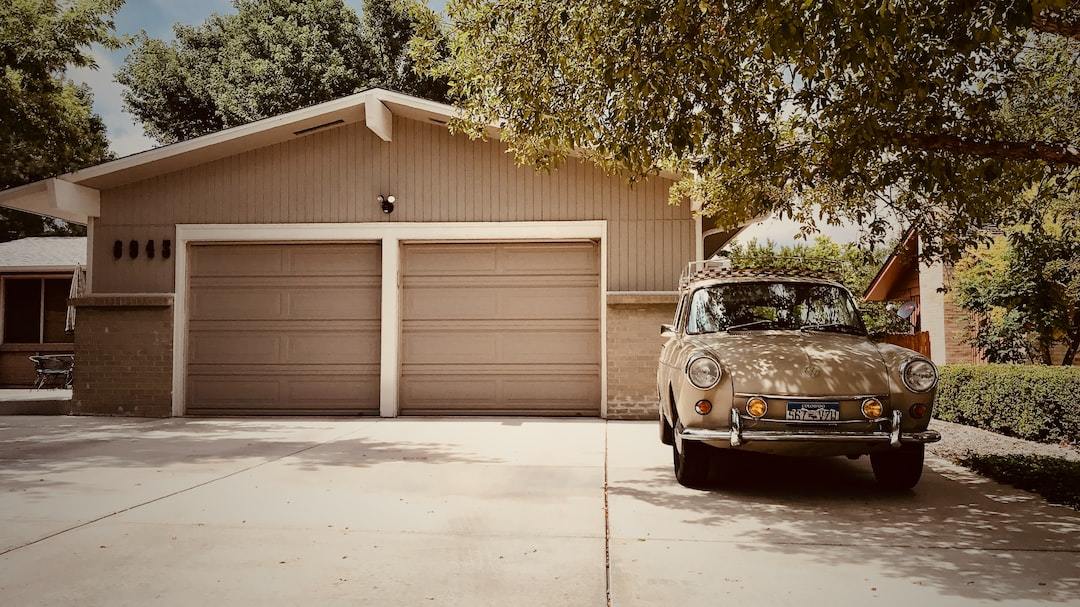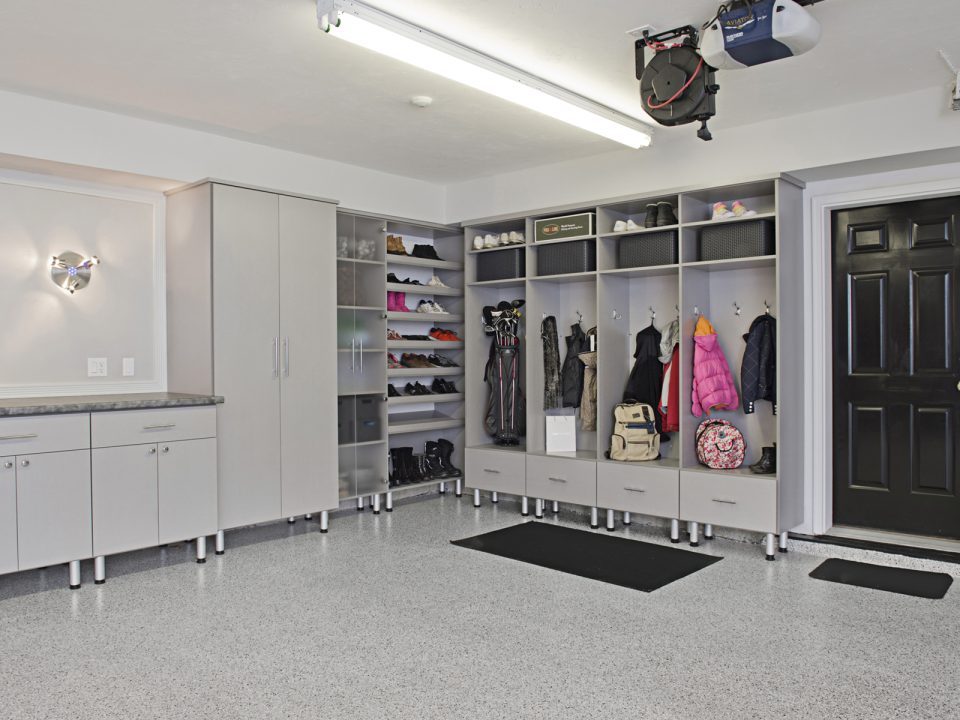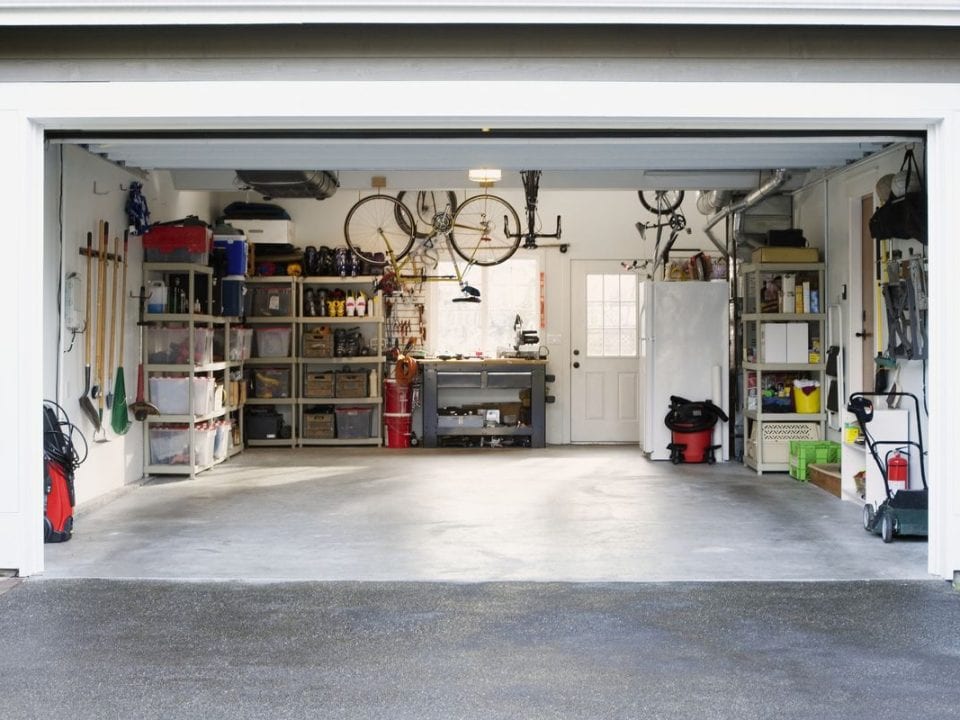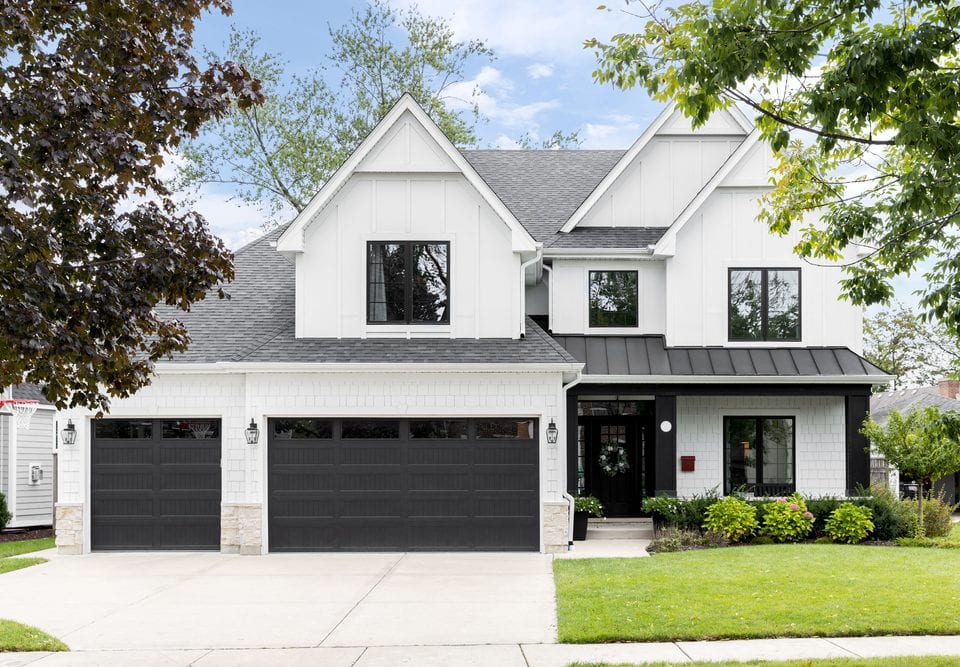
Revamp Your Backyard: Reese Homes’ Outdoor Kitchen Remodel
September 12, 2023
Guide Your Way to a Trustworthy Home Builder
November 11, 2023Have you ever found yourself standing in your garage, gazing at the clutter and chaos, and wondering what it would take to transform this space into something spectacular? Well, you’re not alone. Many homeowners dream of a revamped garage – a workshop haven for DIY projects or maybe an extra living area.
“How much money will remodeling my garage cost?” You might ask. That’s exactly what we’ll unravel today. From understanding basic factors influencing costs to practical ways, you can save bucks without sacrificing quality.
We’ll also explore financing options available if savings won’t cover the total expenses and prepare you for unexpected costs that may pop up along the way.
A well-executed remodel isn’t just about spending money; it’s an investment with potential returns like increased property value or added utility!
Table of Contents:
- The Basics of Garage Remodeling
- Factors Influencing the Cost of Garage Remodeling
- Average Cost Breakdown for Garage Remodeling
- Ways to Save Money on Your Garage Remodeling Project
- Financing Options for Your Garage Remodeling Project
- Preparing for Unexpected Costs in Garage Remodeling
- Evaluating the Return on Investment (ROI) of Garage Remodeling
- Navigating Building Codes and Permits in Garage Remodeling
- FAQs in Relation to How Much Money Will Remodeling a Garage
The Basics of Garage Remodeling
Garage remodeling can be a fantastic way to maximize your home’s potential. It not only adds extra living space but also boosts the overall value of your property.
A garage remodel involves much more than just moving stuff around and giving the walls a fresh coat of paint. The process includes rethinking its purpose, layout design, materials needed, and labor costs involved.
Rethinking Purpose
The first step in any garage remodeling project is defining its new purpose. This could range from creating an additional room or setting up a workshop or hobby area to transforming it into an office space for remote work.
Designing Layouts
You’ll need to come up with functional designs that align with your needs and aesthetics after you’ve decided on the use case for your remodeled garage. For example, if you’re converting it into a guest suite, consider where the bed will go and how best to include essential amenities like bathrooms or kitchenettes.
Selecting Materials & Labor Costs
This part often determines how costly the renovation becomes because better quality materials usually cost more money but are worth every penny due to their durability. Hiring professionals might seem expensive initially but remember that they bring expertise that ensures top-notch results without unwanted surprises down the line. Hiring contractors is typically advised for most garage remodeling projects.
When it comes to cost, a typical garage remodel can range from $6,000 to $20,000, depending on the complexity and size of the project. So understanding these basics is essential in planning your budget accurately.
Factors Influencing the Cost of Garage Remodeling
The cost to remodel a garage can vary greatly, but why is that? Three major elements that determine the cost of garage remodeling are size, materials, and labor.
Size of Your Garage
The bigger your garage, the more it’s going to cost. Think about it like ordering pizza – a small cheese pizza costs less than an extra-large with all the toppings. The same logic applies when you’re remodeling your garage. More square footage means more materials needed and potentially more labor hours too.
Type of Materials Used
You’ve probably heard this before – “you get what you pay for.” This holds true in construction as well. Higher-end materials will hike up your budget, but they also tend to be sturdier and last longer. For instance, if you decide on epoxy flooring over concrete, expect an increase in cost due to its durability and aesthetic appeal.
Labor Costs
Last but certainly not least are labor costs which depend largely on where you live and who does the work. Hiring professionals such as Reese Homes ensures high-quality results because we have years of experience under our belt – think seasoned chefs versus home cooks trying out a new recipe.
Note: No matter how much DIY spirit one has or the desire to save money, certain aspects should be left for pros, like electrical wiring or plumbing installations.
All these elements play significant roles in shaping your project’s overall expense.
So while everyone would love a straightforward answer like “$X per square foot,” there just isn’t one-size-fits-all pricing.
It is imperative to obtain precise estimations from reliable builders and guarantee that you are contrasting like with like when considering your alternatives.
Average Cost Breakdown for Garage Remodeling
Understanding the cost breakdown of a garage remodel can help you plan and budget more effectively. Generally, costs are divided into labor, materials, and any additional features or upgrades.
Labor Costs
The bulk of your garage remodeling budget will likely go to labor costs. Professionals from reputable companies like Reese Homes have years of experience and provide high-quality workmanship that adds value to your home. Expect this part to account for about 50-60% of total expenses.
Material Expenses
Your choice of materials significantly influences the overall project cost too. High-end finishes may look attractive but could add thousands to your final bill. On average, material expenses might take up around 30-40% of your entire budget.
Add-Ons & Upgrades
If you decide on adding insulation or installing custom-built storage systems, be prepared for these extra costs, which can amount to up to 10-20% more depending on what exactly is added during renovation.
| Type Of Expense | Average Percentage Of Total Budget |
|---|---|
| Labor Costs | 50%-60% |
| Materials | 30%-40% |
| Add-ons & Upgrades | 10%-20% |
Bear in mind that these percentages represent rough averages based on industry standards – actual figures vary based on individual projects and choices.
One key takeaway is that garage remodeling isn’t a small financial undertaking. It’s crucial to plan ahead, be clear about your needs vs wants, and have a budget cushion for any unexpected expenses along the way.
Resources For More Detailed Costing
To get more detailed estimates tailored to your specific project parameters, you might find online cost calculators like Homewyse helpful. However, remember these are only rough guides – nothing beats an actual quote from professional.
Ways to Save Money on Your Garage Remodeling Project
A garage remodel can be expensive, yet it doesn’t need to cost a fortune. With some savvy strategies and careful planning, you can trim costs without compromising quality or aesthetics.
Reuse and Recycle Materials
If your existing garage has solid foundations and structures like cabinets or workbenches that are in good condition, consider reusing them instead of buying new ones. Websites like Freecycle offer free materials for those willing to pick them up.
Hire Professionals Wisely
Labor costs often account for a large portion of remodeling expenses. You might save money by doing simple tasks yourself, such as painting walls or installing shelves. But remember, trying to DIY complex jobs could lead to more expensive fixes later on if things go wrong. Hire professionals from reputable companies like Reese Homes who know how to get the job done right the first time.
Plan Thoroughly Before Starting
Rushing into a remodel without proper planning is a recipe for unnecessary expenditures. Sketch out your ideas and ask contractors for detailed quotes before starting any work. This way, you’ll avoid costly surprises mid-project.
Bulk Purchasing Saves Dollars
Purchasing materials in bulk can give substantial savings, especially when working with larger spaces like garages. Suppliers often provide discounts on bulk orders, so don’t hesitate to ask about these deals.
Financing Options for Your Garage Remodeling Project
Funding a garage remodeling project doesn’t have to break the bank. Several financing options can make this task more manageable.
Savings
If you’ve been diligent about saving, your piggy bank could be the best place to start. Using savings helps avoid interest rates and gives you complete control over your budget.
Home Equity Loans
A home equity loan, also known as a second mortgage, lets homeowners borrow money by leveraging the equity in their homes. But remember, failing to repay could risk ownership of your home.
Personal Loans
Personal loans are another option if you don’t want to use your home as collateral. These loans typically have higher interest rates than home equity loans but lower rates than credit cards.
Credit Cards
You might consider using credit cards for smaller projects or short-term funding needs. Just beware of high interest rates and potential impacts on your credit score.
Title I Property Improvement Loan Program
The U.S. government provides help through its Title I Property Improvement Loan program. This initiative offers fixed-rate loans specifically designed for minor property improvements like garage remodels.
Remember that each financing option has its pros and cons, so make sure to weigh your options carefully. The precise financing solution for your project will be determined by a variety of variables, including the cost, your financial position, and how quickly you can settle the loan. You don’t need a money tree in your backyard; with careful planning and research into these funding sources, that dream garage could soon be yours.
Preparing for Unexpected Costs in Garage Remodeling
When redoing a garage, it’s common to come across costs that weren’t expected. While you can’t predict every surprise expense, being prepared and setting aside an emergency fund can make these surprises less daunting.
The Unpredictable Nature of Remodeling
All too often, homeowners dive into their remodel with a tight budget only to find that reality has other plans. It could be anything from discovering rotten wood that needs replacing or realizing the electrical system isn’t up to code.
This is why experts suggest adding at least 10% more on top of your estimated budget for unforeseen expenses. According to Remodeling Magazine’s Cost vs Value Report 2023, this cushion will help you manage such scenarios without stress.
Avoid Last-Minute Design Changes
Making last-minute design changes might seem like no big deal, but they’re notorious cost inflators in any renovation project, including garages.
To keep control over your spending, finalize all details before work starts and resist making alterations unless absolutely necessary. Houzz’s study on home renovations found that adhering strictly to initial designs reduced overspending significantly.
Prioritize Quality Over Saving Pennies
You might feel tempted to cut corners by opting for cheaper materials or skipping professional services, but this approach may lead to higher costs down the line due to damage or the need for repairs earlier than expected. It’s smarter instead – as advised by professionals at Reese Homes – to invest upfront in quality craftsmanship and materials because, ultimately, durability pays off.
Plan for Potential Delays
The adage holds that “Time equals money,” and this is especially applicable when it comes to building projects. Unanticipated delays can extend your project timeline and inflate costs significantly.
To help mitigate this risk, factor in potential weather-related or supply chain interruptions into your plan right from the start.
When revamping your garage, be prepared for the unforeseen. Have an emergency fund ready to tackle unexpected expenses such as decayed wood or electrical systems not up to code. Keep faithful to your original designs and resist spontaneous changes that can escalate costs. Avoid skimping on materials or services; investing in top-notch quality pays dividends in durability, thereby saving you money over time. Lastly, bear in mind that time equates to money – so make sure you factor potential delays into your planning.
Evaluating the Return on Investment (ROI) of Garage Remodeling
When you’re considering a garage remodel, it’s essential to think about the potential return on investment (ROI). But how do we measure this? Let’s break it down.
Property Value Increase
The first thing that comes to mind when talking about ROI is your home’s property value. According to Remodeling Magazine’s Cost vs. Value Report 2023, homeowners can expect an average of 64% recoupment rate for their remodeling projects, including garages.
If you shell out ten thousand dollars on revamping your garage, it could result in an increase of around six thousand four hundred dollars to the worth of your residence. It’s not a dollar-for-dollar recovery, but still significant.
Aesthetic and Functional Utility
Beyond pure financials, though, lies something more subjective – aesthetic and functional utility. This factor may be harder to quantify in dollars but plays a huge role in ROI calculation.
If remodeling gives you space for a dream workshop or helps declutter your life with extra storage room – isn’t that priceless?
Rentability Aspect
You also have the rentability aspect – turning unused square footage into income-generating living quarters has proven successful for many homeowners, as reported by Apartment Therapy.
In hot rental markets like San Francisco or New York City, where space is at a premium, converted garages can fetch handsome rents.
Ultimately, the payoff from your garage makeover depends on how it is used and what value it brings to you. Remember, though, home improvement projects should be about making your home more comfortable for you – after all, it’s not just an investment property; it’s where you live.
Navigating Building Codes and Permits in Garage Remodeling
Garage remodeling isn’t just about picking out new paint or choosing the perfect flooring. It’s also a journey through the maze of local building codes and permits.
Think of building codes as a recipe for safe construction. They set standards to make sure your remodeled garage will be structurally sound, fire-resistant, energy-efficient, and more. The National Association of Home Builders provides helpful info about building codes.
You might wonder why these rules are so important. Picture yourself trying to sell your home down the line but finding out that potential buyers can’t get financing because your remodel doesn’t meet code requirements. It’s not a fun scenario at all.
The Permit Puzzle
A permit is like getting an official “thumbs up” from your city or county before you start swinging hammers around. Without it, you could face fines or have to undo work later – talk about pouring money down the drain.
The cost varies, depending on where you live and what kind of work you’re doing (more extensive projects generally mean pricier permits). To give an idea, though: homeowners typically spend between $400-$1,800 on permit fees, according to data compiled by HomeGuide.
Finding Help With The Red Tape
Tackling this part alone can feel overwhelming but don’t worry. Professionals like Reese Homes have navigated this maze countless times and can help guide you through it. They’ll know the specific codes for your area, what permits are needed, and how to apply.
Remember that understanding building codes and permits is a crucial step in garage remodeling. It’s not just about compliance – it’s also about ensuring safety, preserving home value, avoiding future headaches (and potential fines), and making sure all your hard work doesn’t go to waste.
Navigating the intricate world of permits and building codes can be tricky, but with Reese Homes by your side, it’s smooth sailing. Don’t risk fines or the hassle of redoing work – let professionals handle it for you.
FAQs in Relation to How Much Money Will Remodeling a Garage
Is renovating a garage worth it?
Absolutely. Garage renovations can boost your home’s value, add usable space, and increase its functionality.
How much does it cost to update an old garage?
The average cost varies widely but expect to spend between $6,000 and $20,000 for standard updates.
How much does it cost to refurbish a garage?
Garage refurbishment costs typically range from $10k – $50k, depending on size, materials used, and labor rates in your area.
What is the cheapest way to convert a garage into living space?
The most affordable route often involves doing as much of the work yourself as possible while sticking with budget-friendly materials.
Revamping your garage isn’t just about tossing money into the wind. It’s a strategic move that can add significant value to your home.
So, you’ve discovered how much money will remodeling a garage require. Factors such as size, materials used, and labor costs all play a crucial role in shaping this cost.
You now know practical ways to save on these expenses without compromising quality or aesthetics. Remember, planning and smart choices are key!
Financing options aren’t out of reach either; from loans to savings – they’re there for the taking if needed.
Beware though! Unexpected costs might sneak up on you during the project. But with good preparation, they won’t throw you off track.
Above all else? You’re investing in more than just sprucing up space – it’s about increasing property value and utility too!

Reese Homes, the award-winning home builder, is passionately devoted to enriching the lives of our clients through the highest quality construction and architectural design. We work hand-in-hand with you and our skilled team to create a partnership that guarantees your home truly expresses your unique personal style.




